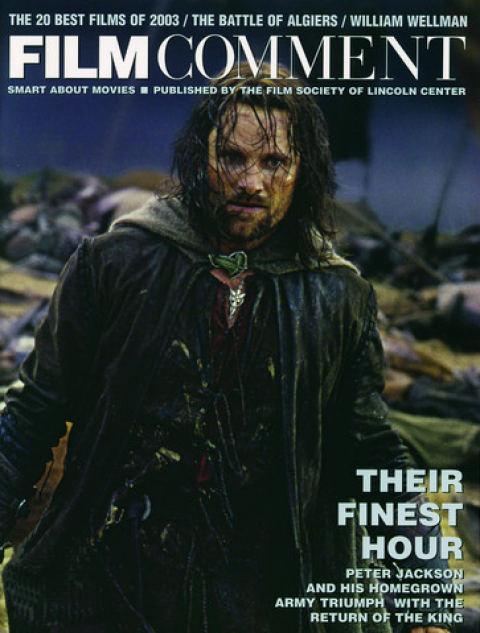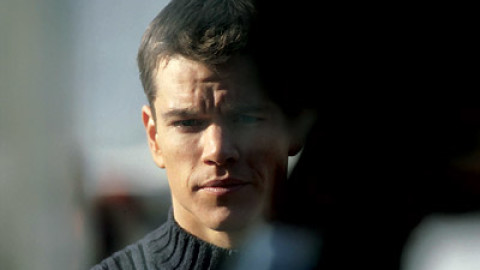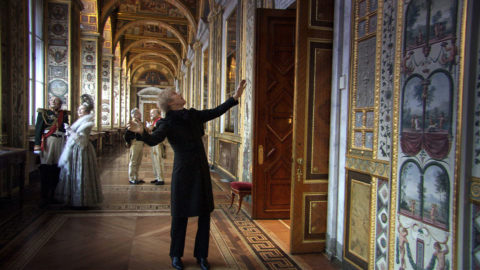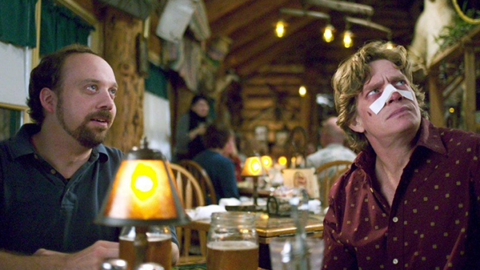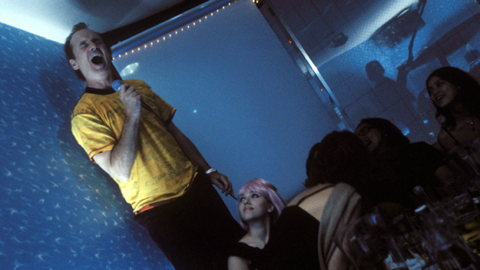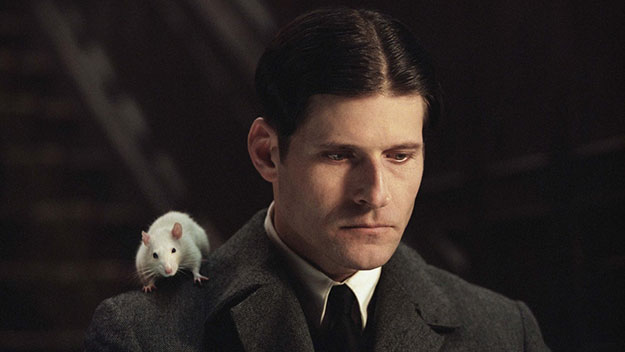
Willard didn’t need remaking so youngsters could be wowed with new and “improved” CGI swarm-of-rats effects. It needed remaking because Crispin Glover was born to bring his clammy brio to bear on the role of the sad, mad rat man. Pallid and twitchy, glassy forehead punctuated by an inky squiggle of hair, Glover’s Willard Stiles is a pathetic monster as iconic as Anthony Perkins’s Norman Bates. And while former X-Files director Glen Morgan knows little of subtlety and cares less, the sequence in which big, black, pushy Ben, a whopper of a Gambian pouched rat (and probable monkeypox carrier), broods and plots as lily-white, know-it-all Socrates basks in Willard’s favor strikes a pitch-perfect note of gallows humor. —Maitland McDonagh
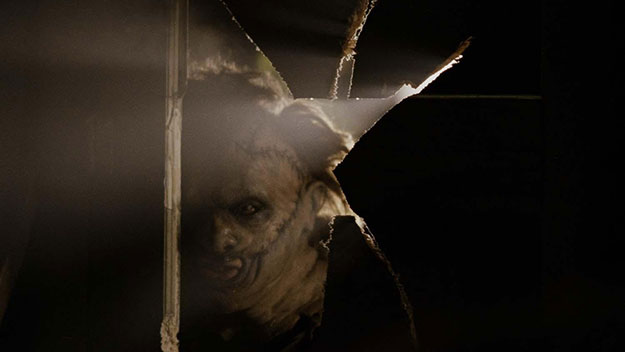
Guilty because it’s a slick, repellent, soulless work of degenerate nihilism. Pleasure because it’s a slick, repellent, soulless work of degenerate nihilism. In other words, Marcus Nispel’s The Texas Chainsaw Massacre remake is a horror film, if not entirely as intended. Nipel has no idea how horrifying it really is: Tobe Hooper’s filthy, abject, raw-meat vision is recycled in the visual syntax of an American Express commercial! Meanwhile, death of cinema aside, this is hands down the most hardcore, relentlessly nasty nubile-dismemberment flick in ages. And that strikes me—in the face, with a platinum-plated meat cleaver—as a good thing. —Nathan Lee

The cult movie of this year’s Venice Film Festival, Christopher Hampton’s Imagining Argentina is a politically righteous, super-bourgeois cinematic endeavor (full of good intentions and unmistakable Oscar ambitions) gone horribly WRONG. Set during the Argentinian dictatorship, it features Antonio Banderas as a guitar-plucking puppeteer so traumatized by the military’s abduction of his journalist lover (Emma Thompson, acting as if she’s in another movie) that he becomes a clairvoyant doomed to feel the pain of the regime’s torture victims and the disappeared. A straightfaced retelling of the myth of Orpheus and Eurydice with absurdly naive symbolism and dialogue to die for. —Olaf Möller
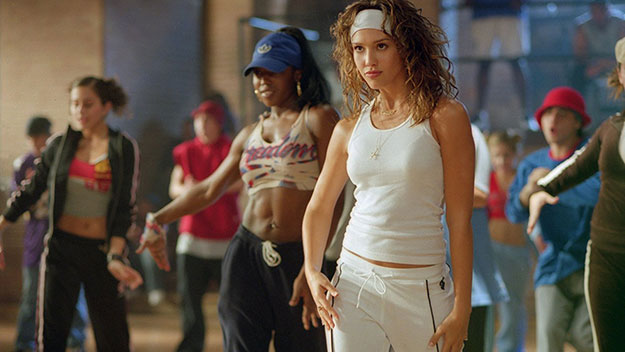
Dark Angel in da hood! Trading her community-center classes for the illest videos, too-Valley-for-her-own-good Jessica Alba awkwardly gyrates her way up the hip-hop food chain as a dancer in Honey. When she learns that the “centuh” she left behind was the only thing keeping Lil’ Romeo out of Juvy, our heroine decides money ain’t a thing compared to helping underprivileged kids bend and snap their way to a brighter future. With a 2:1 rapper-to-actor ratio, more glistening midriff than a TRL marathon, and a gag-inducing smilefest finale, you can call it BritneyScope Cinema: shameless booty-shake marketing barely contained in a lacy corset of squeaky-clean BS. —Matthew Plouffe
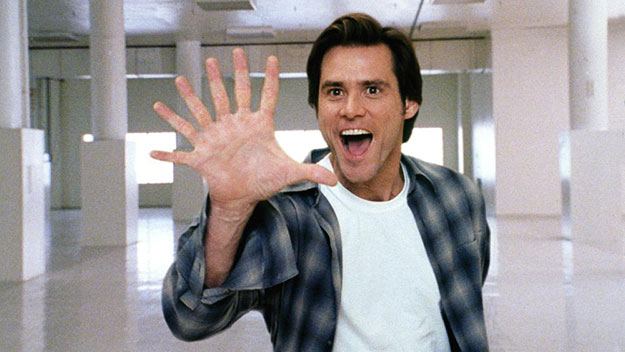
To longtime Carrey-phobes, Jim’s ingratiating mugging at the start of Bruce Almighty is as rebarbative as ever—until you realize that, for the first time in ages, Carrey is prepared to break a sweat for his laughs. It’s partly the spectacle of his obsessive need to please that makes this film unexpectedly compelling. Meanwhile, even the CGI visual puns have a crisp concision—the world’s prayers as a storm of Post-It notes, the parting of the Red Sea re-enacted in a bowl of tomato soup, and a last bit of mileage from that bygone standby, the Jimmy Hoffa gag. Ignore the pious payoff and marvel at an idiot Faust who starts obnoxious and stays that way. —Jonathan Romney
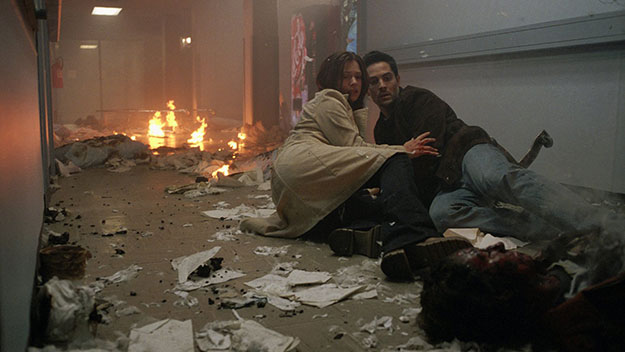
First there’s the nerve-jangling setpiece opening, an insanely protracted highway collision that beats the pants off action sequences from movies with infinitely bigger budgets—including those overseen by David Ellis, here making the best second-unit-to-director move since Hal Needham. Shortly thereafter, a sad case gets a fire-escape railing jammed through his eye (don’t ask how). Then it hits you, what you’ve been missing from so many movies, whether you realized it or not. Gore. Final Destination 2 has blood, flying body parts, and, as Joe Bob would have once put it, air-bag fu. Gloss over the chatter about “death’s design” and just focus on one of my all-time favorite character names: Clear Rivers. —Mark Olsen
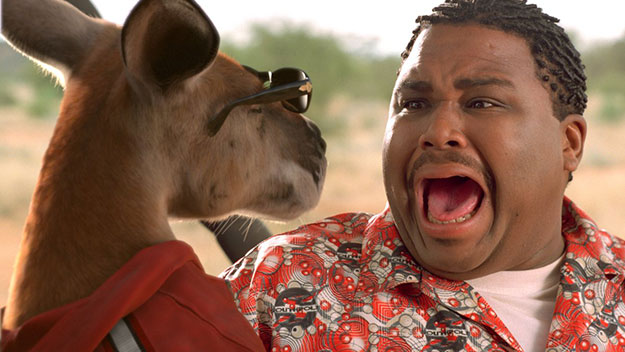
In a not-completely-preposterous alternate universe, I imagine the following scenario: Shortly after 9/11, Rumsfeld tells Bush that mass media is fueling the collective paranoia and anxiety of the American people. Since reality is tainted and subverted by the culture industry, the time has come to reverse the trend. Thus, all top guns of apocalyptic disaster, bombastic war, and gargantuan conspiracy cinema are summoned to the White House for a massive debriefing in which kinder and gentler movies become mandatory by presidential fiat. One obvious result is the Bruckheimer marsupial pic Kangaroo Jack—hopefully the only one of its kind. But it makes me laugh a nervous laugh when I remember its roots in titles like Black Hawk Down, Pearl Harbor, and Armageddon. —Chris Chang
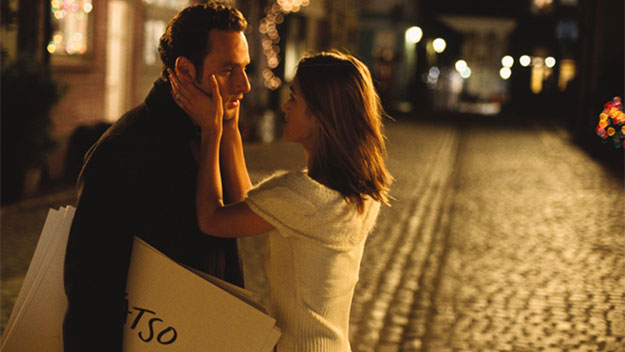
Everyone’s damaged, but, hey, damage doesn’t mean you’re totally up shit creek in Love, Actually’s world of serial minicatharses. The action barely lets up: Hugh Grant shaking his ass to “Jump (For My Love),” Liam Neeson flexing his jaw through an extended tearjerking widowed stepfather-son bonding session, Alan Rickman doing Alan Rickman, and, if that wasn’t enough, Denise Richards and her toothy smile at Heathrow as the credits roll. Classic schlock disguised as post-schlock, it’s self-conscious enough to let Laura Linney and Emma Thompson deftly screw themselves (or be screwed) over. Or do I have it backwards? Could this be the darkest film of the year? —Alice Lovejoy
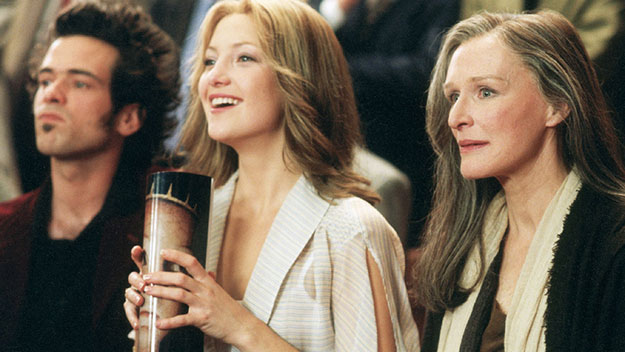
Merchant-Ivory try to pass off Le Divorce, their latest stab at culture clash, as a trifling bonbon, but the film is actually urgently boorish: Kate Hudson gold-digs her way to Paris, flits about with her sorta-suicidal divorcée sister (Naomi Watts, visibly relieved at not having to bawl, hurl, or masturbate on camera), plots to swindle her sister’s ex-husband, and somehow ends up on the Eiffel Tower with a berserk Matthew Modine waving a pistol. The more layers it peels away, the more superficial—and incoherent—it becomes. But just sit back, relax, and enjoy the capitalism-a-go-go excess—and ignore that errant French definite article—for all the implied foie gras, Le Divorce is as American as Freedom Fries. —Michael Koresky
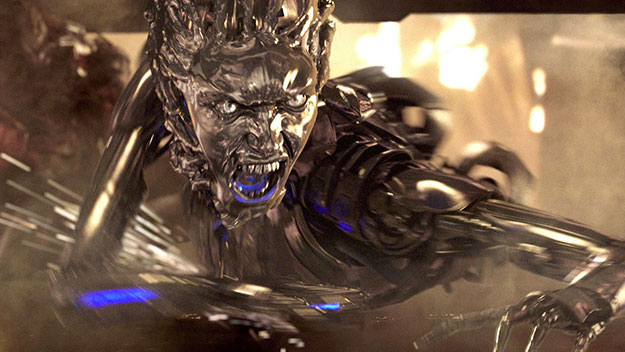
Hard data is elusive, but it’s safe to assume that a good two-thirds of the world’s population believes California elected the Terminator last year. This is hard to fault when U.S. diplomacy hews to that of Cyberdyne Systems’ T-800, but almost impossible when the Arnold-W plotlines come straight from the Terminator franchise. That is, the heroes go back in time, rewrite history/electoral process, assassinate/recall the leader, and set off a series of explosions. Terminator 3: Rise of the Machines’s pleasures are creepily frisson-ish but plentiful: the robo-candidate’s sound bites, the replacement of drug-addled Edward Furlong with Nick Stahl, his character’s horse-pill addiction, and his delayed love for Claire Danes—piqued only when she fires her first automatic weapon. “You remind me of my mother,” he says. —Chris Norris
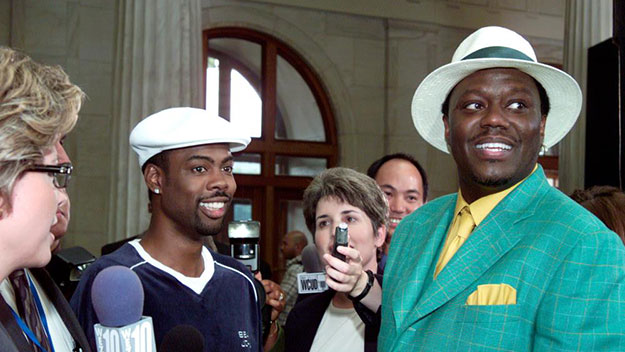
Shallow. Dumb. Clumsy. Amateurish. Capra-esque. Head of State is all of the above. In this cheapo fish-out-of-water flick, Chris Rock (who also directed) plays a D.C. alderman who becomes a media star after rescuing a cat from a tree and is then puppet-mastered into a presidential race in the service of the Man. The drawbacks are obvious, from the hackneyed plot lines and violent slapstick to the foggy political satire, but you might find yourself laughing hysterically throughout—call it involuntary catharsis. Full-to-bursting with bilious political energy, the world might just need the kind of dumb-and-dumber comedy in which the wondrous Bernie Mac enforces state power with no more sophisticated a weapon than his fist. And then there’s the setpiece wherein Beltway types turn into harmless ninnies after being led by Rock in a dance routine. If only our real-life obsidian Bushites could be subdued by group renditions of the Electric Slide. —Alissa Quart



